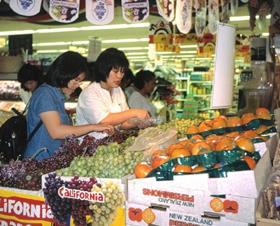
New Zealand's vegetable exports to Japan and other Asian market may rise as consumers shun Japanese products over fears they contain radiation from the striken Fukushima No 1 nuclear plant, according to press reports.
The Fukushima plant, hit by the March 11 earthquake and tsunami, has contaminated soil, seawater and drinking water as it leaks radiation, prompting local and overseas consumers to seek safer food supplies.
Japan imported US$92m worth of vegetables from New Zealand in 2010, and was the country's biggest market, The Japan Times said.
"People will seek alternative supplies and New Zealand is well-placed to meet that," New Zealand Horticulture Export Authority ceo Simon Hegarty is quoted as saying in The Japan Times.
Governments worldwide have also curbed imports of Japanese foodstuffs.
Vietnam on Monday announced it would step up radiation testing on produce imported from Japan.
According to Than Nien News, the Vietnamese government has asked food regulators to establish radioactive thresholds for various kinds of food.
The department of agriculture will oversee inspections on fresh produce, while the ministry of health will screen milk and canned goods.
Vietnam has also asked Japan to present safety certificates for each batch of produce exported to Vietnam.
"Everything is still under control, so consumers shouldn't be worried or confused," a government official told the news site.
Vietnam imports a considerable volume of apples and pumpkins, among other fresh items, from Japan, he said.



